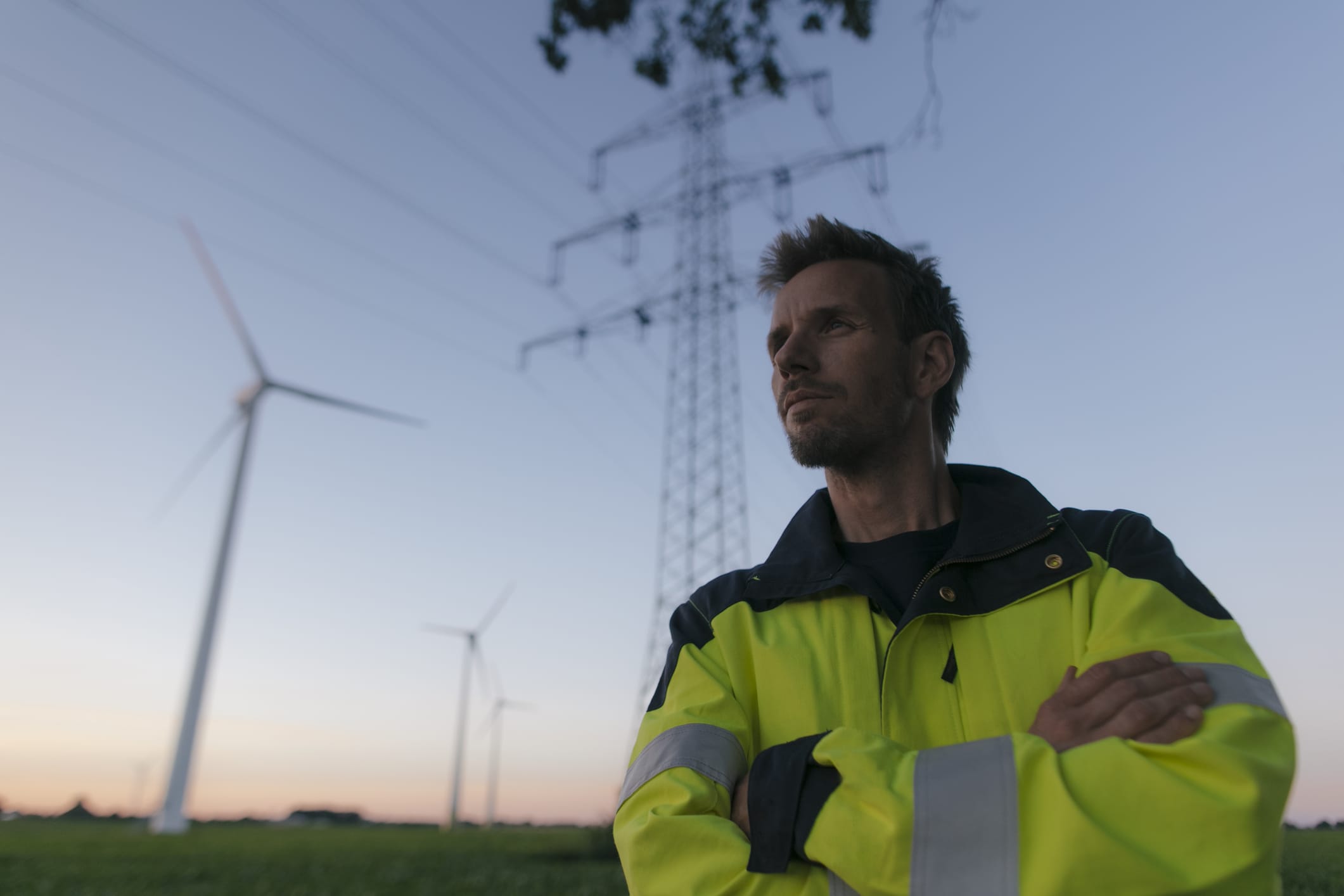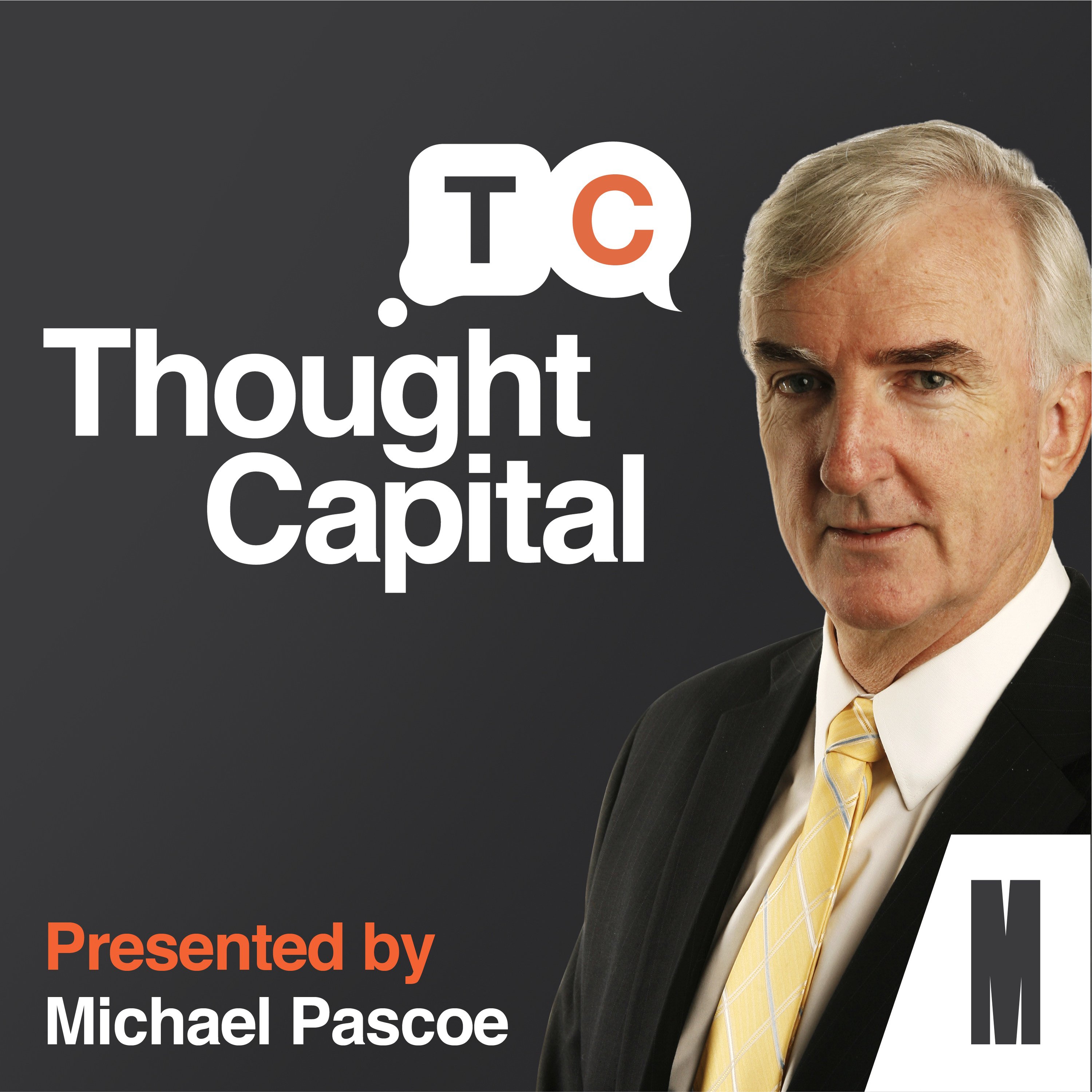The demand for sustainable investments is here to stay and it’s growing. Investors are increasingly putting their capital to work, to have a positive impact on society. When government policies change to combat climate change, investors follow. Sometimes investors lead the way as they try to align their values and personal priorities with their investments.
But how can we trust that investments are truly sustainable and how can this contribute to a clean economy? And how does sustainable investment compare with other forms of investment? Two people who have seen this development throughout their careers in the finance industry are, Professor Deep Kapur, Director of the Monash Centre for Financial Studies and Andre Roberts, Senior Portfolio Manager at investment firm, Invesco. Welcome.
Before we get into the nitty gritty, let’s start by clarifying what sustainable investment is. And when someone says their fund is ethically managed, what does that mean? Deep would you like to go first?
Deep Kapur: Thank you, Michael, sustainable investment is an umbrella term that is applied to investment approaches that broadly consider environmental, social and governance or ESG issues in assessing prospective risk and return. Examples of ESG issues would be considering risks from climate change, transition to a low carbon economy, the energy and material efficiency of industrial production, for example, and then on the other side, modern slavery risks in the supply chain, one example, senior executed compensation, is it aligned with stakeholders? It’s actually a very long list.
Michael Pascoe: The difference between sustainable and ethical investments is there?
André Roberts: What I would say Michael is the sustainable funds as we are encouraged to consider them have a definite stated objective of what sustainability orientated goal is the fund stating to achieve. It could be climate change. It could be more society orientated objectives. Ethical on the other hand is certainly similar, but is more about the approach that the investor is using. So it doesn’t necessarily define specific goals as a sustainable fund needs to do these days, but it just speaks to more of a philosophy that the investment manager often takes. And that will be the ethics of what they do. It can be very similar to a sustainable fund, but doesn’t need to be.
Deep Kapur: You know, if we start thinking about individual companies, this might become a bit clearer. So take the example of Facebook. An ethical investment fund may not own Facebook for reasons related to their influence on social media and young people, et cetera. However, a sustainable investment fund that is focused on creating a portfolio that has a low carbon footprint might well own Facebook in preference to Woodside Petroleum. So when you start looking under the hood, it does become quite interesting, to put it mildly, and ethical funds are probably, “We don’t want to invest in this basket of companies, a sustainable fund may well invest in some of those companies, but go and talk to management and say, look, we don’t think this is the right way to run your business. You might want to consider doing something else”.
Michael Pascoe: Well, how can I be sure my investments are sustainable?
André Roberts: Right? This is again where we’ve seen some good improvement, recently. This label that we attach to a fund is encouraged to meet specific guidelines, right? And when the label includes something like my objective is to have a lower carbon footprint, that should be something specific. And you should be able to demonstrate that the fund actually does achieve that. Now, how do you know that the investment is sustainable is that the sustainable fund will have that objective delivered in line with the metrics that it proposes to measure the outcome, right? Where it gets a little murky as Deep sort of gave some examples, underneath the hood there might be some differences. So is every individual investment in a sustainable fund always going to be sustainable? I think there are trade offs and some bigger picture ideas. Sometimes you could have a mining company in a sustainable fund because they are in a good trajectory to improving and adapting to a new environment.
Michael Pascoe: There is still that question of faith and proof about whether something is sustainable. Honey inevitably attract flies, if the sustainable badge is attracting cash, it will inevitably attract dodgy brothers incorporated as well as genuine players. We’re seeing that in the carbon offset industry, is there any enforcement out there at all of sustainable investment funds?
André Roberts: Yeah, look, that’s a really good point you make, because if the industry is going to rely on something like carbon offsets to justify its extractive side, then you’d want to be assured that the offsets are doing what they’re meant to do. And if there are dodgy brothers involved in the process of generating offsets, then that will be a real concern. So yes, there is meant to be an industry that interrogates and ensures the credibility from the reporting because we do need to weed this out, if that is occurring.
Michael Pascoe: Deep, is there any way for me to feel confident about my sustainable investment really being sustainable?
Deep Kapur: Look depends on who is the provider of the service to some extent, but the reality is that the boat has sailed in the sense that this is the preference of most investors and you cannot forever get away with just slapping a label, that was fine a few years ago. But I think now there are enough journalists, analysts and others who are looking at what is in your portfolio. Disclose what you want, progress is being made. The Securities and Exchange Commission in the US announced that they are proposing that US registered companies will need to disclose their carbon emission scope one, two and three, and actually have that audited. Now is there accounting fraud? Yes. Do the big four sometimes sign off on accounts which later on turn out to be not accurate. I’m sure those things will happen, but at least there is progress. Once we know that your scope three emissions is X. There will be people monitoring and watching. It’s not even remotely perfect but my observation is it’s getting better.
Michael Pascoe: Okay. So there’s obviously a lot of trust involved at this stage, but if I’m trusting, how much impact does my little investment really have? If I try to put it with a sustainable investment manager, Andre?
André Roberts: As a investment manager, your investment has a voice, okay. Knowing that you care about this space. I, as an investment manager should advocate on behalf of my investors, my members, if I’m a Superfund, right? And the advocacy that we’ve seen in the industry has just really taken a step change. And so that is where we go and engage with companies and say, “Hey, my investors want to see this”, encourage the board and management in companies to move in the right direction. The encouragement can be via shareholder proposals and proxy voting. And that certainly is an area where we do make a difference, but the preference of investors has been to retain an ownership rather than say, ” No, I’m not touching that company”. I want to invest in this and see improvement. And that’s where you as an investor can make a difference by putting your vote, your ownership of our fund is another vote, right? And that we certainly apply that very carefully.
Michael Pascoe: As an investment manager, do you see much greenwashing and how do you overcome it?
André Roberts: It is a fair criticism because if you mentioned dodgy brothers before, you will imagine that there are those that slap labels on things to attract bees like honey, this is again where the regulation should really step up to prevent that. You know, we all know of the direction it should go, but it hasn’t been here in Australia, yet. Greenwashing is a criticism that is such that do we really have a responsible or a sustainable fund? Do we have regulation that would require us to meet certain hurdles to be able to put that label on the fund? That would mitigate greenwashing in my mind. The other part is you touched on the carbon credits, another area where greenwashing can at the company level rear its head. If the credits are not credible, it doesn’t help anyone. In fact, it’s quite detrimental and greenwashing is probably consequence of all of that. Regulation will assist and we yearn for more clarity on that front in Australian market.
Michael Pascoe: Now it’s all very well to want to be nice, but does it pay sustainable investment? Does it lag other options?
André Roberts: It’s fair to say that the amount of history we have in our marketplace so far, hasn’t got strong evidence of sustainable funds doing any worse, let alone any better, at this point. What we are seeing is that including sustainable risk controls gives you a better risk for return outcome. What I would say going forward, it would make sense to me that investing in sustainability potentially have better outcomes from a return objective because it has a correlation with companies quality management, not to mention now a tailwind that we’re seeing from investors who want to identify names that have better ESG credentials.
Deep Kapur: I’m not sure I completely agree with your perspective that on a forward looking basis sustainable investing will do better. I agree with you, it may not do worse, but we don’t have enough data. We don’t have consistent ways of evaluating…
André Roberts: Yeah, I agree with that.
Deep Kapur: And you know, now everybody wants to own sustainable investments and bidding the price up. And at some point in time, expensive stocks provide lower returns. And it’s going to take years. I would say about 3000 academic papers have already been written on ESG investing. And there is no consensus, but as I was saying earlier, the reality is it’s a preference for many clients. So I think five, 10 years out, what will probably happen if this trend continues, is that the mainstream indices that are used to benchmark will be replaced by something else. So there’ll be an ASX 200 sustainable index. And Andre, when you’re running your sustainable fund, you will be expected to do better than that. Now whether ASX 200 sustainable is better than ASX unsustainable, if we want to call it.
And the other thing I have also observed in my career that before ESG, the acronym, was invented. I have met many managers who actually took these issues into consideration, like you said, that if it’s a quality company, quality management that cared about its employees and stakeholders, they were often preferred by portfolio managers who had not heard about ESG, making the bet that if you’re treating your customers right, if you’re treating your employees right, if you’re doing the right thing by everyone, then you’re more likely to be able to succeed in the marketplace rather than ripping people’s heads off.
Michael Pascoe: It is still a niche sector of the market. How rapidly is it changing?
André Roberts: Oh, wow. It has been a niche. It’s certainly come to Australia in the last I’m going to say five years in a hurry. It’s been around for a long time, but really accelerated in the last five. The biggest thing that’s changing at the moment more than just equity is becoming more fixed income orientated. Now to me, when that trend gets going, that means you have just about every investment option looking with a sustainable lens. It has deeper impacts into companies. As a company your finance might be predicated on your ESG credentials. That starts to make a difference, I think as well. So it’s accelerating and I can’t see it slowing at all Michael.
Michael Pascoe: Is there also an element of companies not particularly wanting to be good, but not wanting to be embarrassed by being caught out being bad? Do sustainable investors have that sort of byproduct effect on corporations?
Deep Kapur: Andre referred to some of the work at Monash that we’ve done on modern slavery disclosure following legislation in Australia and the work is not super rocket science or anything. Although there were three PhDs who put it all together, but it took the largest 300 listed Australian companies and analyzed the statements that were filed with the Australian Border Force and then gave a credit rating agency, a science letter grades. It graded the companies from A to F and over the last two or three months, we have been receiving calls from companies who have been graded D, E, and F saying, “Oh Superfund X rang us up and said, what is your plan to go from F to A, and please teach us”. And so a lot of these companies have been embarrassed and F doesn’t mean that you’ve got modern slavery in your supply chain.
All it means is that you haven’t disclosed. You haven’t analyzed, you haven’t looked under the hood and reported the way that the government wants you to report. So I’m certainly seeing that many of these companies are actually coming to us with a genuine query like, “This is the first time we did it, we didn’t know what to do. Can you help us do a better job?” So I think there’s a lot of community goodwill and interest on both the investor and the investee company side to do a better job.
Michael Pascoe: Where do you think regulation is headed?
André Roberts: Well, I can only continue the trend that we’ve seen, when you see the US making statements. They mentioned the SCC that’s encouraging, right? I know many companies are reacting in the appropriate way, but now when there’s regulation and audit associated with that, that’s I think an important step. And so I see regulation increasing in line with what we’ve seen out of EU and Europe, and now US not to mention Hong Kong and Singapore.
Deep Kapur: And China as well.
André Roberts: True, absolutely. In China, which is a big one. And Australia is just… Well as many investors here are already acting in the right ways, we just haven’t got the regulator support outside of a few policy areas as Deep’s been speaking to. So it’ll increase which will be welcomed because most people will be able to already support the requirements they’re already acting in this way.
Michael Pascoe: Within the very broad spectrum of what sustainable investment is. What do you see as the hot buttons at the moment? Carbon? What else?
André Roberts: Well, carbon is the hottest button and has been for a little while. It certainly accelerated again with COP26 and the net zero conversation. And so now the hottest topic is ” How can I invest with a net zero objective”, right? And we appreciate that there’s a pathway there’s 25 years to go before we really have this end date. But in the meantime, how do you get there? Can you have a net zero portfolio already? What do you give up if you strive for net zero today? This is the conversation that people are asking for. Probably the hottest button. The biggest trend outside of net zero is in that social space, whether its human rights and diversity, that’s probably where we’ll see a growth and initiatives where sustainable funds that have those objectives will be appearing in Australia, if they’re not here already.
Deep Kapur: I think the S part and the G part will be easier to handle. I broadly agree with Andre that there’s probably going to be, even within that sustainability space, you might start to see specialization. Also, I think it’s a lot easier to create a portfolio, which has good S characteristics because the climate part is so hard, mathematically it’s very difficult. And then you run into all these other problems, let’s say you create a fund, which says “I’m low carbon”, and I’m going to reduce my carbon footprint by 50% in three years. If you wanted to do that, you can’t own a lot of things. And if everybody stopped owning those things, those things might be owned by governments and government-linked entities who are not friendly to us. Imagine gas [inaudible] owning Woodside Petroleum, that’s probably not a good outcome for Australia
Michael Pascoe: Through the powers I’m giving myself, I’m putting you both in charge. What would you like to see change? What would you change?
André Roberts: Can I go first Deep? I would like to have that political will to unambiguously support sustainable investing and having investors have confidence that what they’re buying is actually true to label. That kind of disclosure and regulation supporting that is the kind of political will that I’m looking for, that will improve the outcome for investors.
Michael Pascoe: Minister Deep what would you like to do?
Deep Kapur: I would like to have a global US dollar hundred carbon tax and use that money to develop a universal basic income program that protects the people whose pockets would be badly affected if you had that tax. That will lead to behavior change “a hundred dollars carbon tax. Yes, it’ll hit my pocket, but I can manage, but there are a lot of people who are not in that position”. I think economically it can be done. It sounds a bit utopian, but a hundred dollars carbon tax plus universal basic income is what I would do if I had the power.
Michael Pascoe: Will it result in a clean economy? Does sustainable investing deliver a clean economy?
André Roberts: Yeah, I think that the low carbon objective can be met in our economy with better regulation and a focus effort from investors.
Deep Kapur: I think we’ll get a cleaner economy. I don’t know how clean it’s going to be. I mean, there’s only so much which investors can do, right? I’m not a believer in big government or anything, but these days it’s quite fashionable to criticize Milton Friedman and his whatever 1970 paper, which said that “The job of company management and the board of directors is to focus on only one thing, which is to maximize profits” and people have forgotten in the same paper. He said, ” Maximization of profit should take place in the context of rules that are set by the government and those rules should be set for the betterment of society”. That piece we have completely forgotten.
Michael Pascoe: Well, money always talks. Let’s see where the money flows and we might get a better conversation. Professor Deep Kapur and Andre Roberts. Thanks for being on the show.
André Roberts: Thanks, Michael.
Deep Kapur: Thanks for inviting us.
Michael Pascoe: Thank you to Professor Deep Kapur and Andre Roberts for being on the show. If you enjoyed listening, don’t forget to leave us a review on iTunes. Thought Capital was written and produced by Tina Zenou, editing by Nadia Hume, our executive producer is Helen Westerman.




